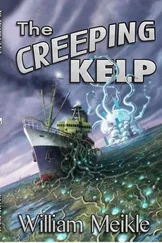George stirred. “Forgive me, ma’am. I don’t think that’s true. Surely knowledge of every kind is vital to us in our battle with the Problem.”
“Dear George, you are so very young.” That husky laugh again. “I can see that such concepts might be difficult for you to grasp.”
“No, George is right,” Lockwood said. “George is always right. We shouldn’t fear uncovering things that are shrouded in darkness. We should shine light on them. Like the lantern in your agency’s logo. That’s what an agent does , after all.”
Ms. Fittes looked at him levelly. “Don’t tell me you’re rejecting my suggestion again?”
“I’m afraid so….Yes, we reject your ‘request,’ or order, or whatever it is.” Lockwood’s voice was suddenly crisp. “Forgive me, but we’re not part of your organization. You can’t waltz into our kitchen and tell us what to do.”
“Oh, but actually, we can,” the lady said. “Isn’t that right, Rupert?”
“Certainly is, ma’am.” Sir Rupert Gale stepped forward from the window, strolled in leisurely fashion behind our backs. “For some of us,” he said, “actions will have consequences from now on.” He reached down, plucked George’s sandwich from his plate, and took an enormous bite out of it. “And for others, there will be no consequences at all. Like this. Mm, excellent bacon! And with mustard, too. Very nice.”
“How dare you—” In an instant Lockwood was out of his chair and halfway around the table. He stopped abruptly. There’d been a flash of silver, equally fast. Sir Rupert’s sword was in his hand, the point hovering a short distance from Lockwood’s midriff. He scarcely looked at Lockwood, but chewed placidly, inspecting the crusts of the sandwich.
“Threatening an unarmed man, are you, Sir Rupert?” George said. “Classy.”
“You could pass me that butter knife, George,” Lockwood murmured. “That would probably be enough for me to deal with him.”
“You are a card,” Sir Rupert Gale said.
Penelope Fittes raised her hand. “There will be no fighting at all. This is a civilized visit. Rupert, put your sword away. Anthony, please sit down.”
Lockwood hesitated a long time, then slowly returned to his seat. Sir Rupert Gale sheathed his sword, still chewing.
“That’s better,” Ms. Fittes said. She gave her little laugh. “You boys! What shall I do with you? Well, the point I’m making is very simple, and I can’t see why you should have any objection to it. You have a charming little agency, and you are more than welcome to keep on doing your charming little things. But from now on, you will stick to the investigations that suit you better—the small hauntings that so plague our society. There will be no more silliness like this”—she pointed to George’s poster on the wall—“no more idle speculation, no more getting above your intellectual station. You, dear George, have always been full of foolish fancies. It would serve you better to forget them and spend a bit of time on useful matters. Your appearance, for instance. Tidy yourself up! Go out and meet a girl, make friends.”
“Starting up an acquaintance with a stick of deodorant wouldn’t go amiss, either,” Sir Rupert Gale said. He patted George’s shoulder.
George sat there, impassive.
“Don’t look so serious, all of you!” Penelope Fittes smiled around at us. “You have all the makings of a perfect company, albeit in miniature. A stout and sturdy researcher—that’s George. And Lockwood, of course—the resolute man of action. And you even have a perfect secretary and typist in sweet Ms. Munro here. Not perhaps the bravest agent, from what my new colleagues at Rotwell’s tell me, but charming to look at—”
“That’s enough!” It was my voice. My chair fell back; I was on my feet. “You know nothing about Holly—or any of us. Leave her alone!”
“Oh, Miss Carlyle.” The lady turned to me, then, and for the first time I felt the full ferocity of her smile. “I can’t tell you how sorry I am that you didn’t take me up on my offer the other week. We could have done great things together. But there we are, there’s no use crying over missed opportunities…which brings me to you , Mr. Kipps.”
Thus for the first time Penelope Fittes acknowledged the existence of Quill Kipps, who stood behind the door, shrinking back against the trash can as if trying to compress himself out of existence. As she turned her smile on him, he flinched.
“I hear you’ve been busy, too, Quill,” she said, “frolicking around with spectacles that don’t belong to you. What fun. I hope you’ve enjoyed spending time with your new friends. But in all your excitement, don’t forget the important thing, which is that by your own choice you are an outcast from my agency, and henceforth barred from all significant work and status. Backsliders like you will not be tolerated, and I shall make an example of you. Your pension will be confiscated; your reputation destroyed. I will see to it that you never work for any reputable psychic investigation company again.”
“It’s all right, Kipps,” Lockwood said. “You can work for us, if you want. We’re not reputable.”
Kipps said nothing; he was very pale, his nose and lips a purplish blue. He looked almost dead from fear and mortification.
“Well, I’d better be going,” Penelope Fittes said. “There’s so much to be done….You know, life is strange, isn’t it, Anthony? You refused my earlier offer—yet now, inadvertently, you’ve done me more of a favor than I could ever have imagined. Thank you for the tea.” She rose, looking around the kitchen a final time. “This is such a nice little house. So charming, so vulnerable. Have a lovely morning.”
With that she went out. By the window, Sir Rupert Gale finished George’s sandwich. Then he took a dish towel from the draining board, wiped the grease from his hands, and dropped the cloth into the sink. Smiling at us, he left the room. We heard the front door close, his footsteps fade on the path outside; shortly afterward, Ms. Fittes’s car purred away into the bright spring day.
We all remained exactly where we were, sitting, standing, shrouded in silence—Lockwood in his chair, George and Holly on either side of the table, me at the far end, Kipps by the door. No one looked at anyone else, but we were all aware of how still the others were, how rigid. We stayed there, joined together by a little web of shock.
Then Lockwood laughed. The spell broke—we all stirred, as though waking from a dream. We looked at him where he sat, smiling broadly, eyes glittering.
“Well,” he said, “they’ve made their position pretty clear, haven’t they? We’re supposed to keep our noses out of this.”
Kipps shifted his feet as if they pained him. George coughed slightly.
“So let’s have a show of hands,” Lockwood went on. “Who agrees that we should be obedient little agents, do what she says, and keep our noses clean?”
He looked around at us. None of us said a thing.
“Okay.” Lockwood straightened the Thinking Cloth, making it nice and neat. “That’s good to know. So, hands up, whoever thinks that in fact we ought to do the opposite of what she said. Whoever thinks that since Penelope has chosen to take the gloves off so completely, we are quite within our rights to make her the target of our subsequent investigations? No matter what threats she and that preening cad might make.”
We all silently raised our hands. Even Kipps, though he made it look as if he was really intending to scratch the back of his head and only did it as an afterthought, with a tentative, half-bent arm. All of us raised them, there in that room where the spring sun shone brightly through the window.
Читать дальше









